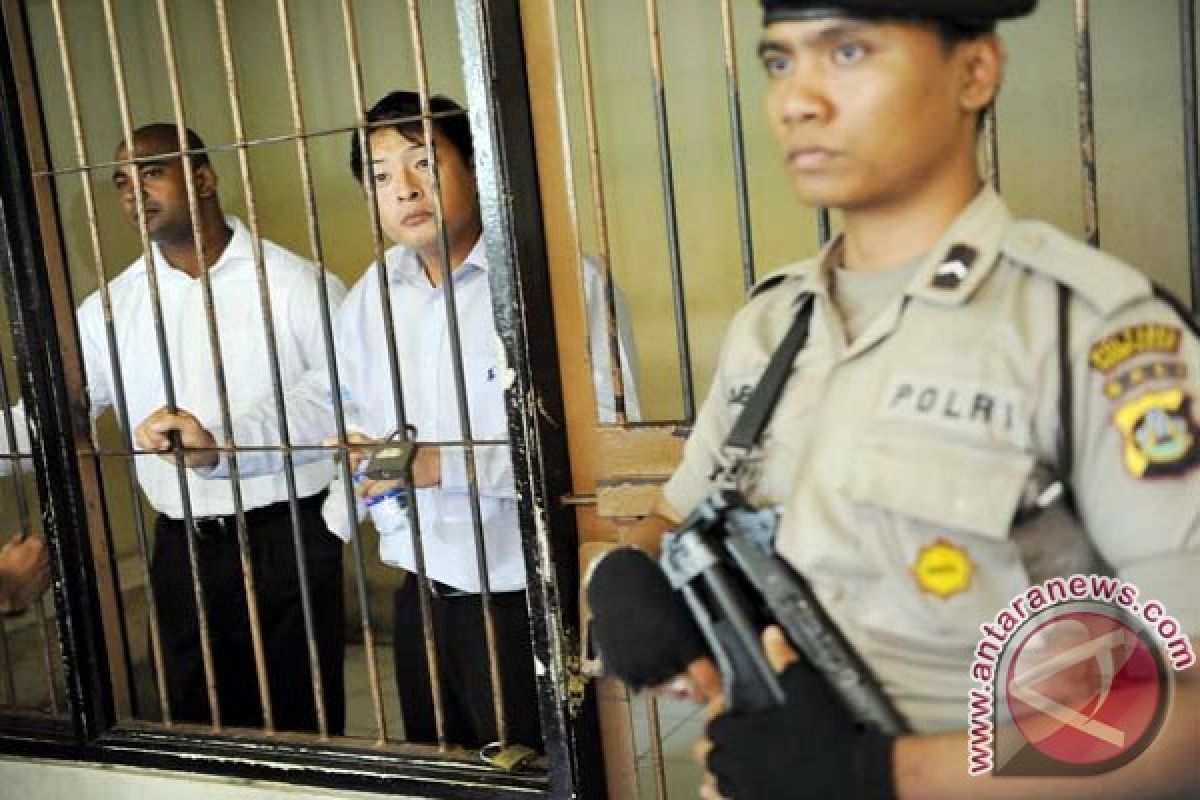I have stressed that I will not pardon drug convicts who have been given the capital punishment."Jakarta (ANTARA News) - The execution of drug convicts given the death penalty in Indonesia is a matter of law enforcement, similar to the execution of terrorists, which is required to fight crimes that threaten the lives of people.
In keeping with this belief, Indonesia has to be consistent and firm with regard to upholding its legal principles without bowing down to political or diplomatic pressures.
However, as the convicts on death row include foreign nationals as well, Indonesia is facing resistance from their home countries. Therefore, the execution of these convicts could result in strained relations with the countries.
In spite of this possibility, analysts believe the strain in relations will only last temporarily. In this case, the problem could affect the political sphere and sovereignty of the country.
The Indonesian governments plan to execute 11 death row convicts, which include foreigners, two of whom are Australian nationals Andrew Chan and Myuran Sukumaran, has drawn resistance overseas, particularly from Australia.
Taking a harsh stance against drug dealers in January, the government of President Joko Widodo (Jokowi) recently executed six convicted drug dealers on death row. Besides one of its own citizens, the convicts were from Malawi, Nigeria, Vietnam, Brazil and the Netherlands. The executions prompted Brazil and the Netherlands to recall their ambassadors in protest.
It will soon execute 11 other convicts sentenced to death, including nine drug convicts, two of whom are Andrew Chan and Myuran Sukumaran.
The two Australians were members of the "Bali Nine" drug ring, a group of drug traffickers who were nabbed on April 17, 2005, in Bali while they were trying to smuggle out 8.3 kilograms of heroin worth Rp40 billion to Australia.
The plan to execute the two Australian nationals has led Australian Prime Minister Tony Abbott to warn Indonesia. He was quoted as saying by ABC that his government "will find ways to make its displeasure known if the executions are carried out."
The Australian prime minister also wanted Indonesia to remember Australias generosity when a deadly tsunami hit Aceh in 2004.
"I would say to the Indonesian people and the Indonesian government: We in Australia are always there to help you, and we hope that you might reciprocate," he was recently quoted by BBC as saying.
According to law expert Dr. Atip Latipulhayat of Padjadjaran State University (Unpad), Indonesias consistent stance on executing convicted criminals on death row, including those found guilty of drug offenses, is legitimate because it is explicitly stipulated in the countrys legal system.
Therefore, foreign governments, including Australia, must respect Indonesias sovereignty, he stated, adding that Canberra, however, had the right to defend the lives of Myuran Sukumaran (33) and Andrew Chan (31) by requesting for pardon.
Furthermore, international relations observer Honest Doody Moelasy of Jember University emphasized that the Indonesian government must be firm in implementing the execution of the Bali Nine drug convicts.
"The Australian government protesting the execution of its citizens is understandable," Moelasy pointed out, adding that the Indonesian government must be firm in carrying out the execution of the drug convicts, even though there is pressure from the Australian government to free its citizens from facing the firing squad.
"The execution may impact the relations between Indonesia and Australia, but the strain will only last for a short period of time. It is believed that their relations will improve because Indonesia holds an important position for Australia," Moelasy remarked.
He also pointed out that countries have different systems of law enforcement to fight crimes. So other countries should respect Indonesias legal principles.
"Death penalty for narcotics dealers is aimed at deterring foreign drug traffickers from targeting Indonesia as their market," he said.
In addition, Indonesia, a country with a population of more than 240 million that serves as a potential market for illegal drug trafficking, is in an emergency situation over drugs.
As many as 18 thousand people die in a year in Indonesia due to drug addiction.
So President Jokowi is resolved to not pardon narcotics convicts and to maintain a firm stance with regard to efforts towards fighting drug offenses, which he views as dangerous and serious.
"I have stressed that I will not pardon drug convicts who have been given the capital punishment," the president stated.
Jokowi revealed that at present, an average of 50 deaths occur every day due to narcotics abuse, which means some 18 thousand victims die due to drug addiction in one year.
"I explained this to other heads of states as well, after the recent execution of drug convicts sentenced to death. I explained this to the presidents and prime ministers who contacted me asking for clemency (for convicts from their respective countries). They should know that as many as 50 people die every day due to addiction to drugs. This does not include the 4.2 to 4.5 million others who are undergoing rehabilitation," Jokowi noted.
In addition, there are 1.2 million addicts who cannot be rehabilitated due to various reasons.
(T.A014/INE/KR-BSR/A014)
Reporter: Andi Abdussalam
Editor: Priyambodo RH
Copyright © ANTARA 2015












